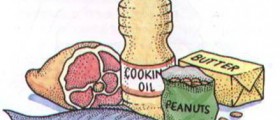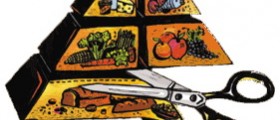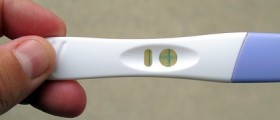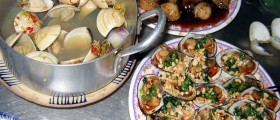
Introduction
For many couples, getting pregnant can be a long and difficult process. Some women are blessed with the ability to conceive very easily and they are usually perceived as very healthy. Even though health plays an important role, there are other factors at play too. Fertility is a very big subject as it involves many different aspects. Still, many women who are generally healthy and do not have specific problems regarding their reproductive system and hormonal status may encounter difficulties when trying to conceive.
There are many tips and advices on improving the fertility. Some of them may work while some are downright useless. In any case, nutrition definitely seems to play a role in fertility and here are some of the do’s and don’ts for women who are trying to conceive.
Diet and fertility
Most experts agree that alcohol is a big no-no for women who wish to have a baby. Alcohol has many negative effects on the overall health and for future moms these effects are even more significant. Experts recommend cutting down on alcohol consumption in the period prior to the pregnancy, while women who have irregular menstrual cycles should better avoid it altogether.
The similar goes for the caffeine too. One or two medium cups of coffee per day will probably not harm the ability of a woman to become pregnant, but anything more that that is not advised. It is also important to remember that caffeine is found in other beverages too, for example in sodas and in tea.
Other things to avoid are foods that are often unsafe, such as ready-to-eat meats and unpasteurized dairy products, since they may contain listeria, as well as some types of fish, because of the risk of heavy metal contamination.
When it comes to carbohydrates, the experts do not seem to reach full agreement. Today it is a well-known fact that carbohydrates are important and should not be cut out of the daily diet. However, the Aspiring mothers should rethink the kind of carbs they usually eat. Refined carbohydrates, such as white flour, bread, pasta and white rice, are stripped off many important nutrients. This means that it is recommended to focus on whole grain cereals, on brown rice, whole wheat pasta and other complex carbohydrates.
Different color vegetables are also highly recommended. Dark green leafy vegetables, ripe red tomatoes and tomato juice, yellow bell peppers, carrots, squash and cucumbers are packed with nutrients that assure that everything in the body goes exactly as it should.
Even though vitamins and minerals are best if taken in their natural form- through food, many doctors recommend prenatal vitamins. Folate and iron are among the most important ones in the period prior to pregnancy.




_f_280x120.jpg)












Your thoughts on this
Loading...